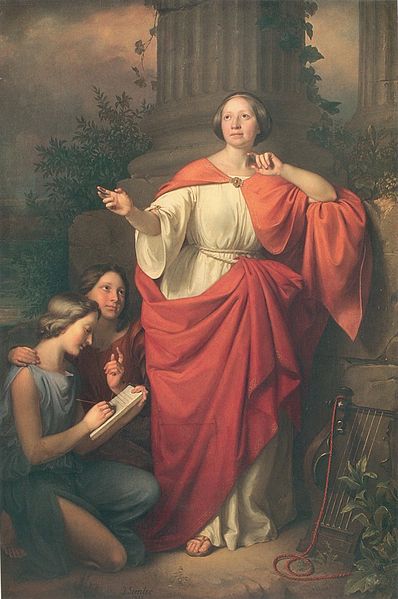Diotima of Mantinea is the name or pseudonym of an ancient Greek character in Plato's dialogue Symposium, possibly an actual historical figure, indicated as having lived circa 440 B.C. Her ideas and doctrine of Eros as reported by the character of Socrates in the dialogue are the origin of the concept today known as Platonic love.
Jadwiga Łuszczewska, who used the pen name Diotima, posing as the ancient seer in a painting by Józef Simmler, 1855
Relief of a woman holding a liver for hepatoscopy, possibly a depiction of Diotima of Mantineia.
The Symposium is a Socratic dialogue by Plato, dated c. 385 – 370 BC. It depicts a friendly contest of extemporaneous speeches given by a group of notable Athenian men attending a banquet. The men include the philosopher Socrates, the general and statesman Alcibiades, and the comic playwright Aristophanes. The panegyrics are to be given in praise of Eros, the god of love and sex.
The front page of the 1513 editio princeps of the Symposium
A fresco taken from the north wall of the Tomb of the Diver (from Paestum, Italy, c. 475 BC): a symposium scene
A terracotta figurine of Aphrodite Urania, c. 3rd Century BC. Aphrodite Urania symbolized an elevated, more spiritual love, as opposed to the more earthly and lustful Aphrodite Pandemos
Aristophanes, who notoriously parodied Socrates in his comedy The Clouds, gives a possibly satirical speech on Eros at the symposium






